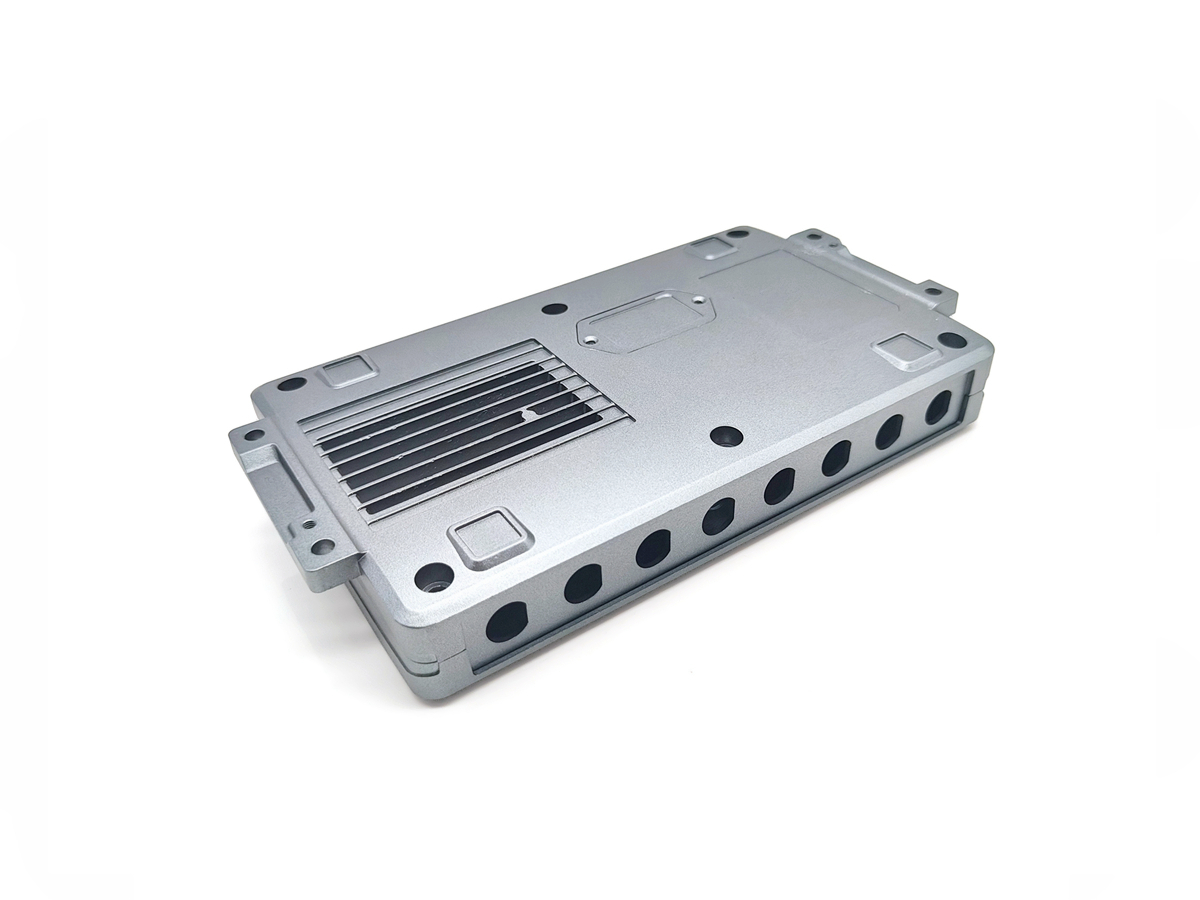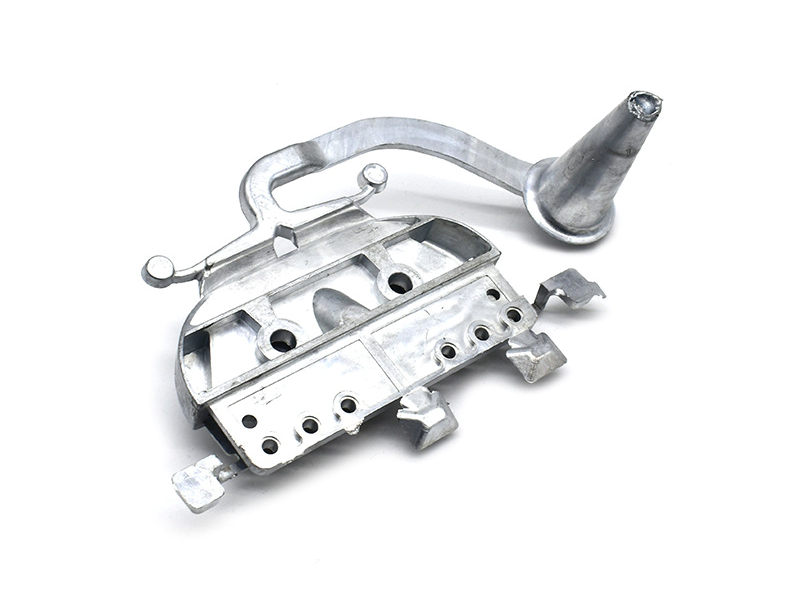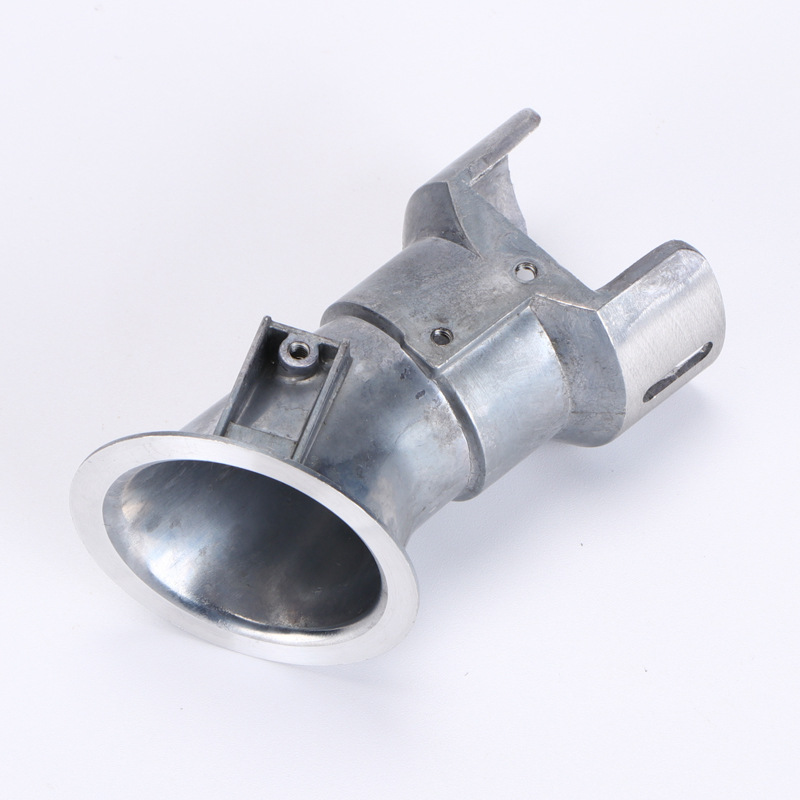Zinc Alloys
Zinc alloys are widely used in die casting due to their excellent fluidity, dimensional stability, and ease of casting. These alloys are ideal for high-precision automotive, electronics, and consumer goods applications, offering a wonderful balance between strength, cost-efficiency, and corrosion resistance. Zinc die casting is particularly popular for producing small to medium-sized parts that require complex geometries and tight tolerances.
At Neway, we provide a full range of zinc die casting services tailored to meet the specific needs of various industries. Our expertise in Zamak alloys ensures that your components are produced with precision and high performance.
Description
Zinc alloys, including Zamak, offer excellent fluidity and dimensional stability, making them ideal for high-precision die casting applications.
Key Characteristics of Zinc Alloys
Zinc alloys are typically divided into two main categories: Zamak (an alloy of zinc, aluminum, magnesium, and copper) and other specialized alloys like Zinc-Aluminum alloys. Zamak 3, Zamak 5, and Zamak 12 are the most common and widely used zinc alloys, each offering unique properties suited for different applications.
Alloy | Composition (wt%) | Key Properties | Typical Applications |
|---|---|---|---|
Zamak 3 | Zn: 96.0–98.0%, Al: 3.5–4.5%, Cu: ≤ 0.05%, Mg: ≤ 0.06% | Excellent fluidity, good strength, moderate corrosion resistance | Automotive parts, electronics housings, connectors |
Zamak 5 | Zn: 95.0–97.0%, Al: 3.5–4.0%, Cu: 0.5–1.0%, Mg: ≤ 0.06% | Higher strength, better corrosion resistance than Zamak 3 | Structural components, automotive brackets, valve bodies |
Zamak 12 | Zn: 94.5–96.5%, Al: 3.5–4.0%, Cu: 0.5–1.0%, Mg: ≤ 0.06% | Excellent strength, superior dimensional stability at high temperatures | Aerospace, high-precision mechanical parts, industrial components |
Zinc alloys offer a cost-effective solution with good mechanical properties for parts that do not require the high strength of steel but still need durability and precision.
Mechanical Properties of Zinc Alloys
The mechanical properties of zinc alloys, especially Zamak 3 and Zamak 5, are generally adequate for applications requiring moderate strength and excellent dimensional accuracy. Below are typical mechanical properties for the most common zinc alloys:
Property | Zamak 3 | Zamak 5 | Zamak 12 |
|---|---|---|---|
Ultimate Tensile Strength | ~280 MPa (40,600 psi) | ~350 MPa (50,750 psi) | ~390 MPa (56,550 psi) |
Yield Strength | ~200 MPa (29,000 psi) | ~220 MPa (31,900 psi) | ~240 MPa (34,800 psi) |
Elongation at Break | ~3.0% | ~1.5% | ~1.5% |
Brinell Hardness | ~70 HB | ~85 HB | ~90 HB |
Modulus of Elasticity | ~70 GPa | ~70 GPa | ~70 GPa |
Thermal Conductivity | ~120 W/m·K | ~115 W/m·K | ~115 W/m·K |
Coefficient of Thermal Expansion | ~22.5 µm/m·°C | ~22.5 µm/m·°C | ~22.5 µm/m·°C |
Zinc alloys exhibit good casting characteristics, such as high fluidity and excellent fill, especially in thin-walled sections and intricate designs. These properties result from the alloy's relatively low melting point (about 385–390°C).
Benefits of Using Zinc Alloys in Die Casting
Excellent Fluidity: Zinc alloys have excellent flow characteristics, allowing for intricate and complex geometries to be cast with minimal porosity.
Dimensional Stability: Zinc alloys maintain dimensional accuracy even in high-volume production.
High Strength-to-Weight Ratio: Offers a combination of strength and lightness, making them ideal for lightweight applications.
Corrosion Resistance: Zinc alloys, especially Zamak 5 and Zamak 12, offer good resistance to atmospheric corrosion, making them suitable for outdoor and marine environments.
Cost-Effective: Zinc alloys are less expensive than other metals like aluminum or brass, offering a highly cost-effective solution for die-cast parts.
Recyclability: Zinc alloys can be easily recycled, making them an environmentally friendly option.
Typical Applications of Zinc Alloys Die Cast Parts
Zinc alloys are widely used across industries where precision, durability, and cost-efficiency are critical. Common applications include:
Automotive: Transmission housings, seatbelt components, and structural brackets
Consumer Electronics: Electrical connectors, housings for smartphones, computers, and telecommunications devices
Aerospace: Lightweight, precision components such as fittings and valve bodies
Home Appliances: Switches, knobs, and connectors for appliances and power tools
Industrial Equipment: Pump parts, hydraulic components, and valves
The versatility of zinc alloys makes them suitable for both high-volume manufacturing and precision components.
CNC Machining Considerations for Zinc Alloys
Zinc alloys are known for their excellent machinability, making them ideal for post-casting machining. The alloys can be easily drilled, tapped, and machined with standard tooling.
Machining Best Practices:
Tooling: Carbide tools are ideal for high-speed machining due to the alloy’s relatively soft nature.
Cutting Speed: Milling: 250–400 m/min; Drilling: 100–150 m/min
Feed Rate: 0.05–0.15 mm/rev
Coolants: Water-based coolants to reduce temperature buildup and improve tool life.
Surface Finish: Ra ≤ 1.6 µm achievable, ideal for parts with sealing or functional interfaces.
Neway’s CNC machining offers advanced capabilities for post-processing zinc die cast components, ensuring optimal fit and finish.
Surface Treatments for Zinc Alloys
Zinc alloys are compatible with several surface treatments, which enhance their corrosion resistance and aesthetic appeal:
Anodizing: Provides corrosion resistance and a variety of color finishes for outdoor or marine applications.
Powder Coating: Adds a protective layer while improving the appearance of the part.
Painting: Provides additional UV protection for exterior parts exposed to weather conditions.
Tumbling: Used for deburring and surface preparation before final coating.
All treatments are tested for durability and adhesion to ensure long-lasting protection in demanding environments.
Why Choose Neway for Zinc Alloys Die Casting?
At Neway, we provide end-to-end zinc die casting solutions, from mold design and prototyping to high-volume production with ISO 9001 and IATF 16949 quality certification. Our expertise ensures that every zinc casting meets the highest strength, precision, and durability standards.
FAQs:
What are the advantages of using Zamak alloys in die casting?
How do Zamak 3 and Zamak 5 differ in terms of mechanical strength?
Can zinc die castings be anodized or powder-coated effectively?
What industries commonly use zinc alloys for die casting?
How do zinc alloys compare to aluminum alloys in terms of cost and performance?



